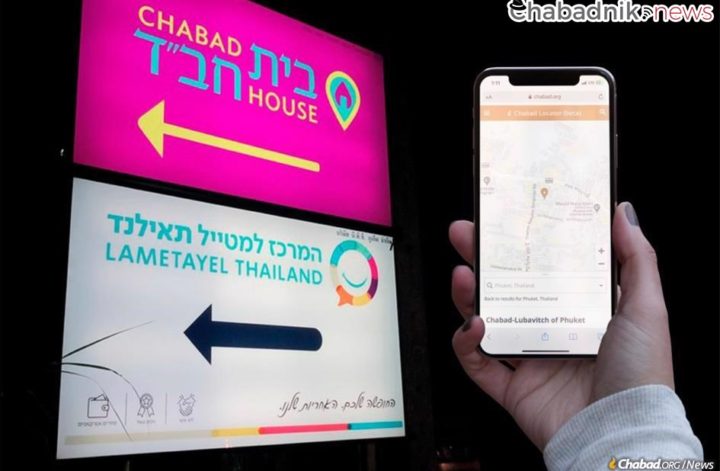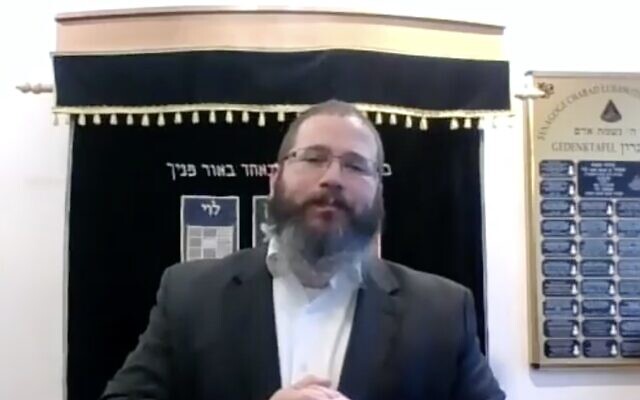Lead actor in Son of Saul discusses Auschwitz, faith and personal identity
Geza Rohrig is an Hungarian poet and actor who garnered international attention for his lead role in Son of Saul. The film won the Grand Prix at the 2015 Cannes Film Festival, the Golden Globe for Best Foreign Language Film and the Academy Award for Best Foreign Language Film. The following is an excerpt of a 2016 interview with Baila Olidort.
You recently returned from a visit to Krakow, Poland, where you delivered the closing address at the Conrad Festival—one of Europe’s most prestigious literary/arts events. What message did you bring to your audience?
I spoke about freedom. You need tremendous discipline to be free. Freedom is the ethos of bearing responsibility. There could be nobody freer than two lovers, correct? But love comes with commitment. Freedom is not a right, it’s our most fundamental duty. Without it, everything loses meaning. The soul of the law is freedom, the body of freedom is the law. Where there is no freedom, there is no real order. And where there’s no order, there’s no real freedom.
In the film, you play a Sonderkommando who becomes obsessed with giving a dead boy a ritual Jewish burial. This is a very dark, depressing film. What was it about this script that appealed to you?
The idea that there is something more important than survival. Everyone wanted to escape, to break out of the hell they were in, which is legitimate. But it’s an animalistic move. If the house is burning, even the cat will jump from the window.
Saul goes a level higher than that. He says, “Survival is not all there is. There must be something more than survival.” I think that’s a very Jewish belief.
What he attempts to do in those circumstances is altogether irrational.
It is. But everything that the Sonderkommandos were forced to do was irrational. Jews were being murdered on an industrial level, and their job was to move the dead from the gas chambers to the crematoria. So what kind of a response can one have to this?
He couldn’t save the living. He couldn’t even bury the dead. So he decides to disregard the situation. There are very few things that are, for us as human beings, simply not negotiable: to feed the hungry, to clothe the naked, and to bury the dead. He couldn’t give the boy his bread because he was dead. It was as if he was saying, “The only thing I can do for you is to bury you, to arrange a kaddish for you.” This one mitzvah became his connection to sanity.
I have been with the chevra kadisha [Jewish burial society] for many years, doing tahara and shmira [washing and guarding the body of the deceased and preparing it for burial in accordance with Jewish law]. So I really connected to the script.
What made you get involved with tahara?
It began when I was a teenager in Hungary when someone from the minyan called me. They needed a third person. I now do it at least two times a week. It’s transformative, in a way more than an average davening, which can become a bit mechanical at times. Every tahara is different and so personal. I think if we want to keep the right balance between humility and self esteem, death should never leave our mind entirely.
As a teenager, you started an underground punk band called HuckRebelly, and you were expelled from high school because of your anti-communist activity. Did you have any religious affiliation as you were growing up?
Not really. My grandpa was the first person who took me to a Rosh Hashanah service. It was a terrible experience. I was 14, and the rabbi said that Hitler’s plan was to kill every last Jew on the face of the earth, so we shouldn’t be here. It’s by G-d’s grace that we are here.
Then he said that now that we are here we have to earn our right to live. I thought of my non-Jewish classmates and wondered, Why do I have to earn it? Because my family members were murdered so I have to earn my right to live?
How about if G-d needs to earn my grandpa’s faith after all this? I was not interested in going to shul for a good while at all.
What changed?
I was in Poland studying for my masters in philosophy. It was 1987, still during communism. I had planned to go to Auschwitz but I put it off until the end of my year there because I knew it would be intense. I went there knowing exactly which barrack I would go to: Barrack 13 in Section E. I knew where my family was, and I just wanted to see it.
But instead of being upset I felt some sort of a healing going on, and I wanted to spend more time there. So I went to the closest apartment building asking people if there was a room to rent and they said, “Here? Are you kidding? Who wants to come here?”
But I rented a room for a month. And I went back to the lager every day.
What did you do there every day?
I davened. It wasn’t the usual davening [praying]. I didn’t know how to daven in Hebrew yet. But there I was, a freezing question mark, a pulsing wound. And I felt answered. I felt heard. I wasn’t just in pain. I was in a dialogue.
Soon I realized that the only answer to this place is to be one of them whom the Nazis didn’t want to survive. I wanted to look like, think like, and be like most Jews who were murdered here.
Your father passed away when you were just a small child.
I lost him when I was four years old, so obviously there was an emptiness, a lack of something that was driving me. I felt like I was nobody’s son. It’s important to have footsteps in front of you, even if you want to go the other way. If you have your father’s footsteps at least you know where the other way is. I realized that I could not even make an intelligent decision about if I wanted to be Jewish or not until I knew what it is. So I went straight from Poland to Jerusalem.
You mention “davening” a number of times. How did you integrate prayer into your life?
When I first started to daven, I was slow because Hebrew was all new to me, and the people around me were doing the Amidah in five minutes. I had a huge struggle with the Shema Koleinu blessing because I understood that this is where you relate to Hashem with your own requests, and there was a lot I needed to ask for others. So I learned to daven faster.
But the real issue was, what should my focus be? And I realized that davening is not about begging. You daven because you are, because you woke up; you see, you move. It’s about gratefulness and wonderabout the complexity and the drama of the universe. Of course when you are in trouble you scream, but only then. That’s not what davening is for.
The film is difficult to watch. With the camera on your face filling almost every frame in that hellish setting, how did you keep your sanity during the filming?
It was taxing. In the darkest moments—remember, I was playing a Sonderkommando whose job it was to escort thousands of people day after day to the gas chambers and then to burn their bodies in the crematorium—I often thought, “Dear G-d, where were you? How could you allow this to happen? Why were you so deaf to the cries and the prayers of all the yidden here?”
It’s a question that paralyzes your faith.So I’d remind myself of the living example we had in the Lubavitcher Rebbe who saw the destruction. His brotherDov Ber, perished at the hands of the Nazis so he knew, in the most personal way, what Jews went through in those years. And yet he became an energetic leader inspiring us to look forward instead of falling into the crisis, which is what happened to so many people who were haunted by the Shoah.
I often had an inclination to be depressed, to sink into despair during the shooting. It was dark. These were the times when I found myself relying on the Rebbe’s example. That really helped me come out of it.
But your question still begs an answer.
Yes, but I don’t have it. Ilu yedativ, heyitiv. “If I would understand Him, I would be Him.” We have to know our place. In this world of space and time we simply can’t understand and we can’t accept. I was with the late Elie Wiesel a few weeks before he passed away. He struggled with this question as so many others. I wish I had a magical argument to take all the doubts out of people’s minds.
But you? You are not paralyzed by it.
I’m not.
Why?
I only can speak of where I’m at. It’s unimaginable for me to stop being who we are and to finish ourselves off as Jews. There’s this paradox—on the one hand it’s clear that it’s really impossible to come to terms with what happened. On the other hand, let’s not forget that against the odds we are still here. Not only are we here, but Yiddishkeit is alive. So this is exactly where I want to be.


